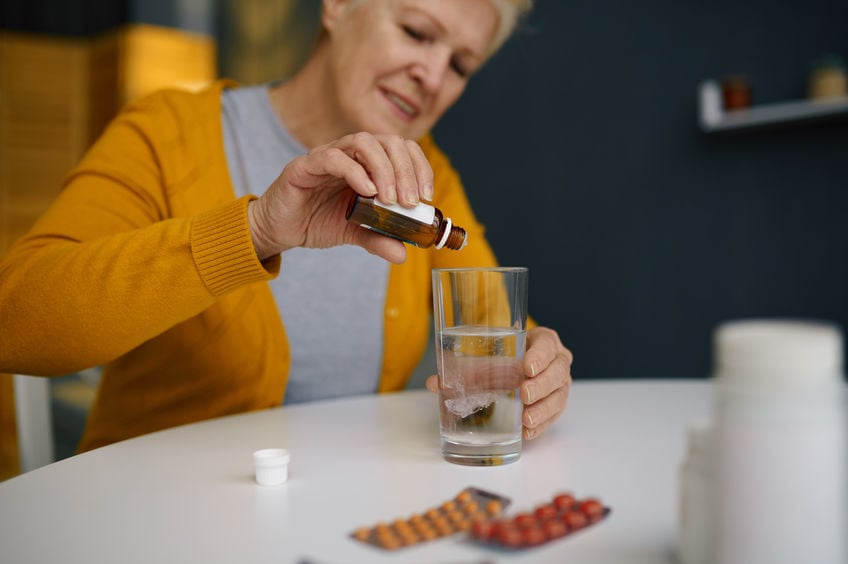Can OTC Medications Make Ulcerative Colitis Worse?
Ulcerative colitis (UC) is one of many inflammatory bowel diseases (IBD). UC can cause both inflammation and ulcers throughout the digestive tract. Usually, the condition primarily targets the large intestines and rectum, with symptoms that develop over time rather than appearing rapidly. UC can be a debilitating disease, especially if the condition isn’t well controlled for many people. But with treatment, pain and associated symptoms can be greatly reduced, causing the diagnosis to go into remission. But many UC patients seek relief from symptoms and discomfort that the disease can cause. However, not all over-the-counter (OTC) medications are safe for these individuals to use.

What can a UC patient take?
If a UC patient is experiencing mild pain from symptoms, experts agree that Tylenol or generic acetaminophen is generally safe to use. Likewise, OTC medications used to treat temporary diarrhea are also considered safe to consume. However, always speak with a doctor before taking any new OTC medications to confirm that there aren’t any contraindications with prescription medications that could create unwanted side effects.
What to avoid
Most other OTC pain relievers usually aren’t recommended for people with UC. In some cases, these medications can make people feel worse. The most likely culprits include ibuprofen, aspirin, and nonsteroidal anti-inflammatory drugs (NSAIDs). Often these OTC meds can cause painful flare-ups of UC symptoms such as abdominal pain, cramping, bleeding with stool, and even rectal pain.
Beware of supplements
Supplements can help to boost overall health for many people concerned about nutritional deficiencies caused by an imbalanced diet. The same concerns exist for UC patients who struggle to get enough essential vitamins and minerals from food because of ongoing digestive issues. With UC, supplements can be a double-edged sword that worsens symptoms. Many supplements contain additives that can increase gastrointestinal symptoms like nausea or diarrhea. Likewise, taking a supplement on an empty stomach can significantly worsen the symptoms. Instead of supplements, people with ulcerative colitis incorporate nutrient-dense foods rich in vital compounds such as calcium, folic acid, iron, vitamins B12, D, A, E, K, and zinc. All of the above can correct deficiencies, boost immunity, and help control symptoms. In most cases, UC patients should only take supplements under the watchful care of a physician.
Working with a healthcare provider
UC doesn’t have to be a battle between a patient and a severe digestive upset. For many people, remission is possible. But that goal can only be achieved when a patient works with a physician to create a treatment strategy and then sticks to that plan. While many UC patients require prescription medication to treat and control symptoms, some OTC medications can help when mild flare-ups occur. People diagnosed with UC should always speak with a doctor before incorporating new drugs to understand potential side effects.
RECENT
ARTICLES



Our Patients Say
We pride ourselves on providing exceptional customer service to our community. Here are a few things that the community is saying about us.
Convenient and quality service. Ive never had my prescriptions filled quicker and the pharmacist took the time to tell me about what I was taking.
Excellent experience! Friendly, knowledgeable staff!
I have been a customer since they opened. Julie and Hiten have both treated me with the utmost respect and have always been ready to take care if my needs with a smile




